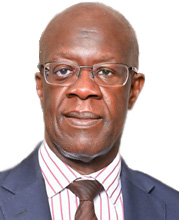
Dear Readers,
The year 2020 goes down in history as one when human kind was extremely challenged and devastated by the COVID-19 pandemic. “A challenged world is an alert world and from challenge comes change”. We look forward to “Building on women’s strength for a better future in a COVID-19 world”. That was the theme this year on March 8, when international Women’s day is commemorated. We have also come to the end of March, a month that was globally recognised as the Women’s month. In 1975 the United Nations officially began sponsoring International Woman’s Day on March 8. The UN’s General Assembly declared that they aimed “to recognize the fact that securing peace and social progress and the full enjoyment of human rights and fundamental freedoms requires the active participation, equality, and development of women; and to acknowledge the contribution of women to the strengthening of international peace and security.” No country can wholistically prosper without the engagement of women and girls. We should, moving forward reflect once again and take stock of women’s participation in science and research.
The vision of the Global 2030 agenda and the Sustainable Development Goals is to ensure the engagement and representation of women and girls in all the cultural, social, economic and political situations and
science is no exception. Others have stated before that “diversity and inclusion create a more dynamic and innovative institutional science and research culture, bringing different points of view to bear on challenges and discouraging groupthink.” It is the experience that different perspectives, world views and opinions positively contribute to problem solving and resilience leading to exceptional performance.
To achieve successful transformation that genuinely and sustainably embraces gender equity, diversity and inclusion, in research and development institutions should not view the approach as just a tick box exercise. In order to bring meaningful value to an organisation there is need to embrace the ideas by the leadership, staff and trainees along with effective mentorship and building organisational resilience so that the drive towards gender equality can withstand changes in leadership and remain sustained over time. Institutions should be very deliberate about recruitment, nurturing and retention of talent. Appropriate policies, data and information driven decision making is essential to put in place and also monitor the impact of policies and practice.
